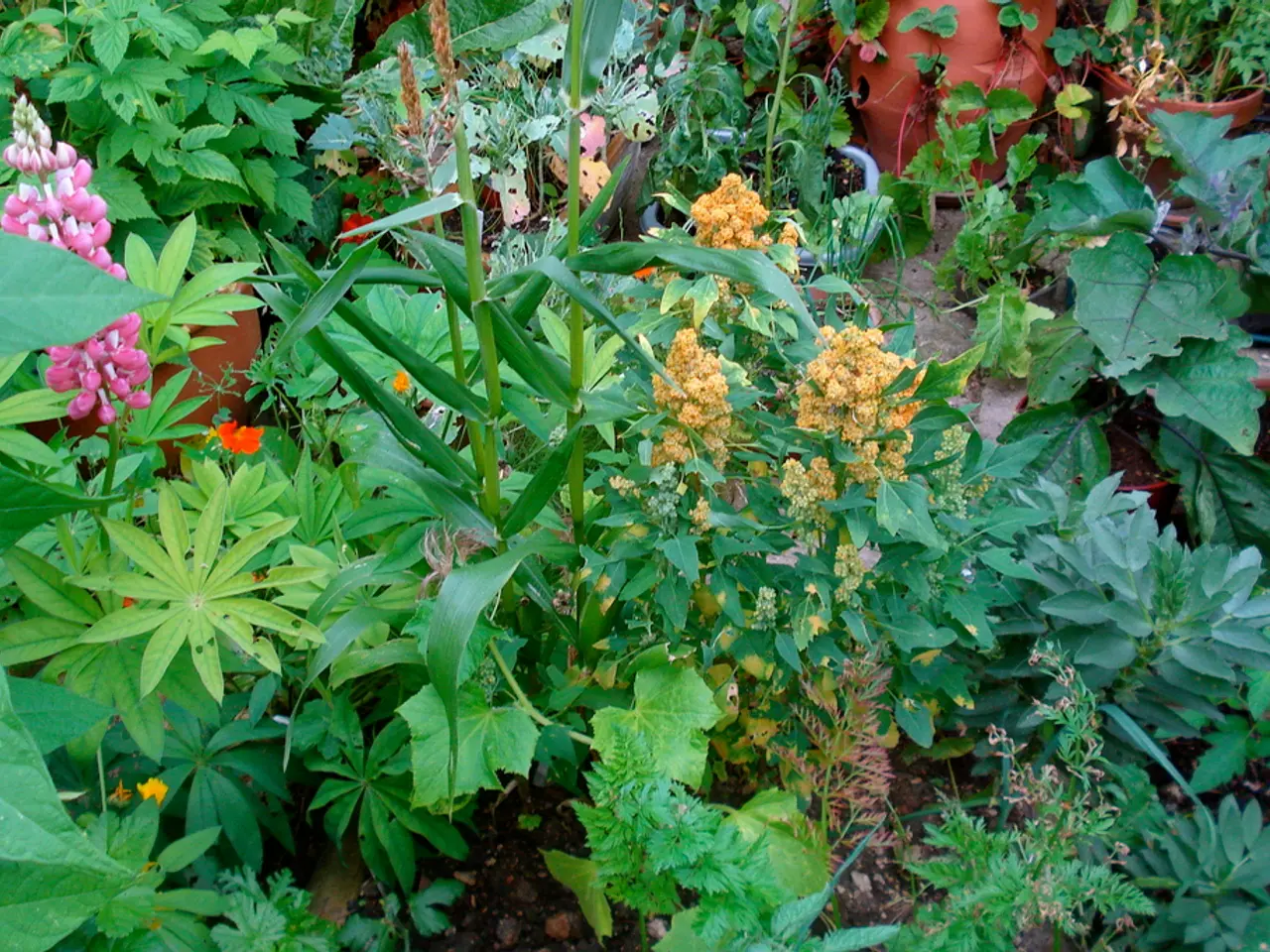cultivating a garden for senior well-being
Gardening is a delightful pastime that offers numerous benefits for seniors, enriching their lives in ways beyond mere aesthetics. From physical health improvements to cognitive stimulation, gardening can be a meaningful and enjoyable activity that promotes well-being.
Embracing a rotating crop system and introducing new plants each season can make gardening an interesting ritual. Not only does this keep the garden vibrant, but it also provides opportunities for sensory engagement, supporting cognitive and emotional health. Planting sensory-rich plants like rosemary, lavender, lamb's ear, and colorful blooms can create a sensory-rich environment, enhancing the gardening experience.
Physically, gardening offers low-impact exercise that improves balance, builds core strength, and enhances flexibility. It's an excellent way to maintain muscle strength, flexibility, and balance, with activities like digging, planting, and watering mirroring therapeutic exercises for conditions such as arthritis and balance issues.
Mentally, gardening engages planning, problem-solving, and learning, which can slow cognitive decline. Gardening can benefit the brain by increasing levels of BDNF and PDGF, proteins tied to memory and cognitive function.
Gardening also offers emotional benefits, fostering a sense of purpose, reducing stress, and combating loneliness by encouraging social interaction in community settings.
For seniors, adopting age-friendly gardening design and practices can make the hobby even more accessible and enjoyable. Key tips include using raised garden beds and containers to reduce bending and facilitate easier access for those with limited mobility or arthritis. Accessible pathways that are clear, level, slip-resistant, and at least 36 to 48 inches wide are essential for safe movement with walkers or wheelchairs.
Long-handled tools can minimize strain and allow comfortable gardening without excessive reaching or bending. Incorporating seating areas for rest and comfortable breaks during gardening activities is also important. Ensuring good sunlight exposure is crucial to boost vitamin D levels but also providing shaded spots to prevent overheating.
Designing gardens with raised, easy-to-reach planters and considering adaptive tools can accommodate reduced strength or dexterity. Frequent mild activities like watering and weeding support sustained physical activity without causing fatigue.
Regular gardening can offer significant health benefits. A 2023 study found that gardening led to increased vegetable intake and improved diet quality in older adults. Gardening also has been proven to support both physical and mental health for seniors.
Moreover, gardening can lower the risk of developing dementia by 28%. Gardening offers social connection opportunities through community gardens, sharing plots, or trading herbs with neighbors.
Making gardening a regular part of one's life doesn't require big time blocks; it's about consistency. Moderate gardening can burn up to 330 calories per hour for a person weighing 154 pounds. Ergonomic tools with padded handles and lightweight designs can protect joints and reduce fatigue during gardening.
Heights for raised beds or elevated containers should be between 24 and 36 inches. Reducing bending and kneeling in gardening is achieved through the use of raised beds or elevated containers.
Tending to a garden can help you move with ease, think more clearly, eat more mindfully, and feel more connected - both to others and yourself. Gardening activates neuroplasticity, the brain's ability to adapt and grow, which plays a key role in healthy aging.
For more resources on the brain, mobility, and coordination, check out the Longevity Science Labs, using the research of the Institute for Life Management Science. Whether you have a full yard, a balcony, or just a few pots by the window, your garden can be an enriching space. Indoor gardening setups with herbs or microgreens offer the same benefits in a compact, accessible format. Breaking up gardening tasks throughout the week can be beneficial, such as watering on Mondays, pruning on Wednesdays, and harvesting on Saturdays.
Gardening offers a purposeful activity, creating beauty and producing food. It's a meaningful, healthy aging strategy that stimulates all five senses and provides a sensory-rich environment.
- Incorporating sensory-rich plants in one's garden can create a stimulating environment that supports cognitive and emotional health, making gardening a meaningful and enjoyable activity for seniors.
- Engaging in gardening can foster resilience both physically and mentally, as it increases levels of BDNF and PDGF, proteins linked to memory and cognitive function, and reduces the risk of developing dementia by 28%.
- Embracing mindfulness while gardening can help seniors eat more mindfully and move more easily, offering various health benefits and promoting overall well-being.
- Adopting a lifestyle that includes regular gardening can contribute to a healthier diet, as a 2023 study found that gardening led to increased vegetable intake and improved diet quality in older adults.
- Transforming a home or garden into a space for gardening, whether it's indoor or outdoor, can provide numerous health benefits, such as improved mental health, physical well-being, and an enriching sensory experience.




